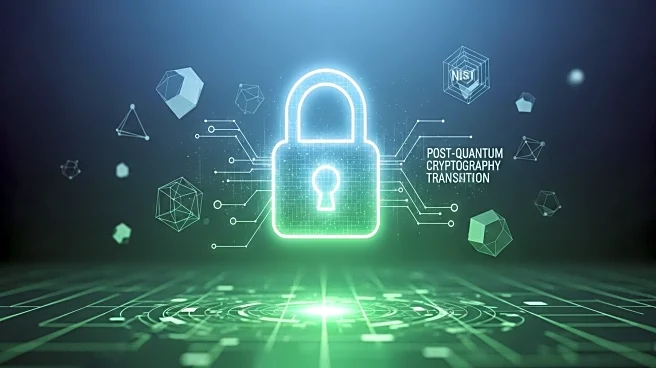What's Happening?
The National Institute of Standards and Technology (NIST) has published its first set of post-quantum cryptography standards, marking a significant step in securing U.S. digital infrastructure against potential quantum computing threats. These standards are the result of over seven years of cryptographic scrutiny and competition. The U.S. government is now tasked with transitioning its digital systems, including battlefield systems and tax records, to quantum-resistant cryptography by 2030, as mandated by National Security Memorandum 10. This transition is crucial to protect sensitive government data from 'harvest now, decrypt later' attacks, where adversaries store encrypted data with the intention of decrypting it once quantum computing capabilities mature.
Why It's Important?
The transition to post-quantum cryptography is a national security imperative, as quantum computers pose a significant risk to existing cryptographic systems like RSA and ECC. If adversaries develop quantum computers capable of breaking these systems, it could lead to a systemic failure in securing federal communications and data protection. The U.S. government has set deadlines for transitioning to quantum-safe algorithms, emphasizing the urgency of the situation. Agencies must inventory their cryptographic assets, assess vulnerabilities, and develop transition plans to ensure national security systems are protected against future quantum threats.
What's Next?
Federal IT leaders are advised to enforce cryptographic discovery mandates, demand transparency from vendors regarding their support for NIST's PQC algorithms, and fund pilot deployments to test post-quantum algorithms. Procurement teams should be educated on quantum-safe procurement guidance to ensure readiness for PQC. The transition is not a future capital project but a current cybersecurity budget line item, requiring immediate action to address quantum risks. Agencies must comply with federal legislation, including the Quantum Computing Cybersecurity Preparedness Act, to prepare for the migration to quantum-resistant cryptography.








